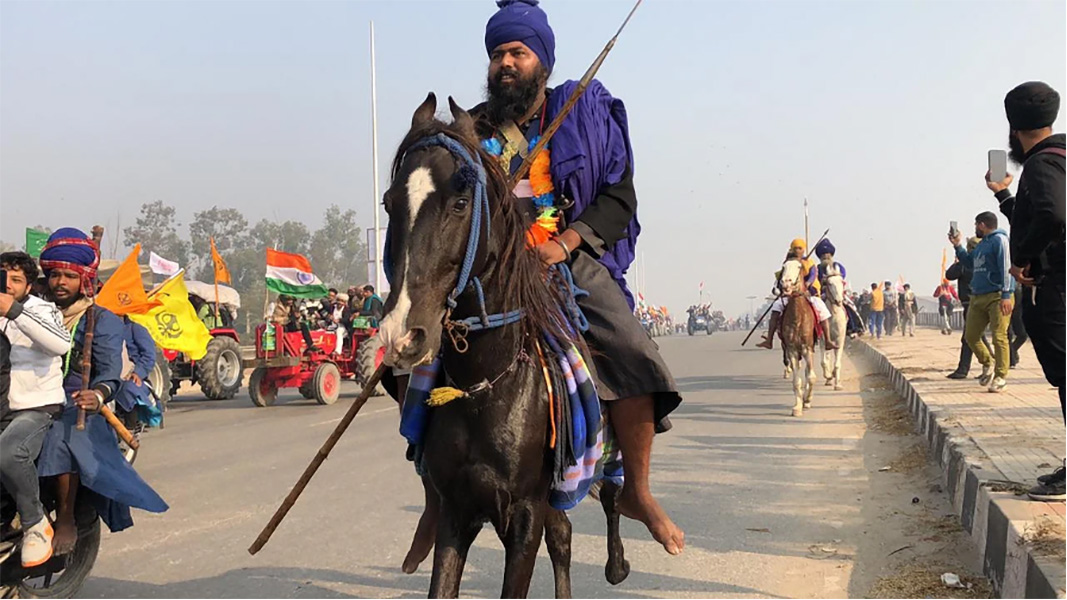



H.O.R.S.E. is a basketball game that is played on home court. I don’t mean a court that a home team hosts visitors on, I mean a driveway with a backboard fastened above a garage, or one of those nets that has a base filled with hose water and sand. If you’re tall enough to hang off a rim, it’s best to add some bricks to the base so it doesn’t tip over when you dunk. My childhood H.O.R.S.E. home court was a cracked asphalt driveway with a backboard that bees loved to nest in. Before each game, you had to throw a ball against the backboard as hard as you could, run, and repeat a couple of times to shake all the bees away. After the bees were gone, I still had the WASPs to contend with: upper middle-class neighbours annoyed at the sound of a bouncing ball; the horse girl across the road who had no interest in playing my version of H.O.R.S.E.; or someone new to the neighbourhood walking their dog and stopping to ask my sisters and I, with our brown faces and athletic ability, where we were from.
To win at H.O.R.S.E., you need to make five shots from different spots on the court that your partner can’t hit. Each time someone fails at duplicating a shot, they get a letter, starting with H. Miss five shots, you spell H.O.R.S.E., and you lose. This is where home court advantage matters. Having command of your space makes winning more possible. Home court means you know the quirks of your backboard or the dips in the pavement—you know how much power to put behind that shot you launch from atop a boulder at the tip of your driveway.
At first glance, the game of H.O.R.S.E. doesn’t have much to do with horses at all. But, when I think about how winning is predicated on the seemingly innocuous power shifts offered by the ability to take command of space, I recognize that this is what horses have long done. In fact, I only started paying attention to horses and their ability to shift power when Nihang Sikhs mounted their horses during the recent year-long farmer protests in India. The protests began in September 2020 when Indian prime minister Narendra Modi passed new laws that would restructure agriculture throughout the country. These proposed reforms promised to hurt already struggling Indian farmers. Thousands of farmers and their allies began protesting first in Punjab and then Delhi where they set up camps and held parades and rallies for an entire year. The Nihang Sikhs, sometimes referred to as the Nihang Horsemen, rode their horses to the rallies. Sitting atop horses, they told reporters they felt powerful.1 The horses were a symbol and system of protection for the protestors who spent a year being met with state opposition so strong it often turned violent. Over a year after the protests began, in November 2021, Modi backed down and accepted the demands of the protestors. The farmers packed up their camps and went home. They rode their horses away in victory.
Playing basketball in my childhood driveway doesn’t have much to do with horses. Except for in that small moment when the balance of power shifts and the court is yours to win. But only until the daylight fades, your sisters’ arms are tired, and the bees—impatient with being relegated to the sidelines—decide it’s time to come home.
1 Bhandari, Hemani. “Nihang Sikhs on horses join agitating farmers at Singhu border,” The Hindu, December 4, 2020.
Rianka Singh is Assistant Professor in the Department of Communication and Media Studies at York University. Singh’s research is primarily concerned with the relationship between platforms and feminist politics. She is co-editor, with Sarah Sharma, of Re-Understanding Media: Feminist Extensions of Mashall McLuhan (Duke University Press, 2022).


H.O.R.S.E. is a basketball game that is played on home court. I don’t mean a court that a home team hosts visitors on, I mean a driveway with a backboard fastened above a garage, or one of those nets that has a base filled with hose water and sand. If you’re tall enough to hang off a rim, it’s best to add some bricks to the base so it doesn’t tip over when you dunk. My childhood H.O.R.S.E. home court was a cracked asphalt driveway with a backboard that bees loved to nest in. Before each game, you had to throw a ball against the backboard as hard as you could, run, and repeat a couple of times to shake all the bees away. After the bees were gone, I still had the WASPs to contend with: upper middle-class neighbours annoyed at the sound of a bouncing ball; the horse girl across the road who had no interest in playing my version of H.O.R.S.E.; or someone new to the neighbourhood walking their dog and stopping to ask my sisters and I, with our brown faces and athletic ability, where we were from.
To win at H.O.R.S.E., you need to make five shots from different spots on the court that your partner can’t hit. Each time someone fails at duplicating a shot, they get a letter, starting with H. Miss five shots, you spell H.O.R.S.E., and you lose. This is where home court advantage matters. Having command of your space makes winning more possible. Home court means you know the quirks of your backboard or the dips in the pavement—you know how much power to put behind that shot you launch from atop a boulder at the tip of your driveway.
At first glance, the game of H.O.R.S.E. doesn’t have much to do with horses at all. But, when I
think about how winning is predicated on the seemingly innocuous power shifts offered by the ability to take command of space, I recognize that this is what horses have long done. In fact, I only started paying attention to horses and their ability to shift power when Nihang Sikhs mounted their horses during the recent year-long farmer protests in India. The protests began in September 2020 when Indian prime minister Narendra Modi passed new laws that would restructure agriculture throughout the country. These proposed reforms promised to hurt already struggling Indian farmers. Thousands of farmers and their allies began protesting first in Punjab and then Delhi where they set up camps and held parades and rallies for an entire year. The Nihang Sikhs, sometimes referred to as the Nihang Horsemen, rode their horses to the rallies. Sitting atop horses, they told reporters they felt powerful.1 The horses were a symbol and system of protection for the protestors who spent a year being met with state opposition so strong it often turned violent. Over a year after the protests began, in November 2021, Modi backed down and accepted the demands of the protestors. The farmers packed up their camps and went home. They rode their horses away in victory.
Playing basketball in my childhood driveway doesn’t have much to do with horses. Except for in that small moment when the balance of power shifts and the court is yours to win. But only until the daylight fades, your sisters’ arms are tired, and the bees—impatient with being relegated to the sidelines—decide it’s time to come home.
1 Bhandari, Hemani. “Nihang Sikhs on horses join agitating farmers at Singhu border,” The Hindu, December 4, 2020.

Rianka Singh is Assistant Professor in the Department of Communication and Media Studies at York University. Singh’s research is primarily concerned with the relationship between platforms and feminist politics. She is co-editor, with Sarah Sharma, of Re-Understanding Media: Feminist Extensions of Mashall McLuhan (Duke University Press, 2022).